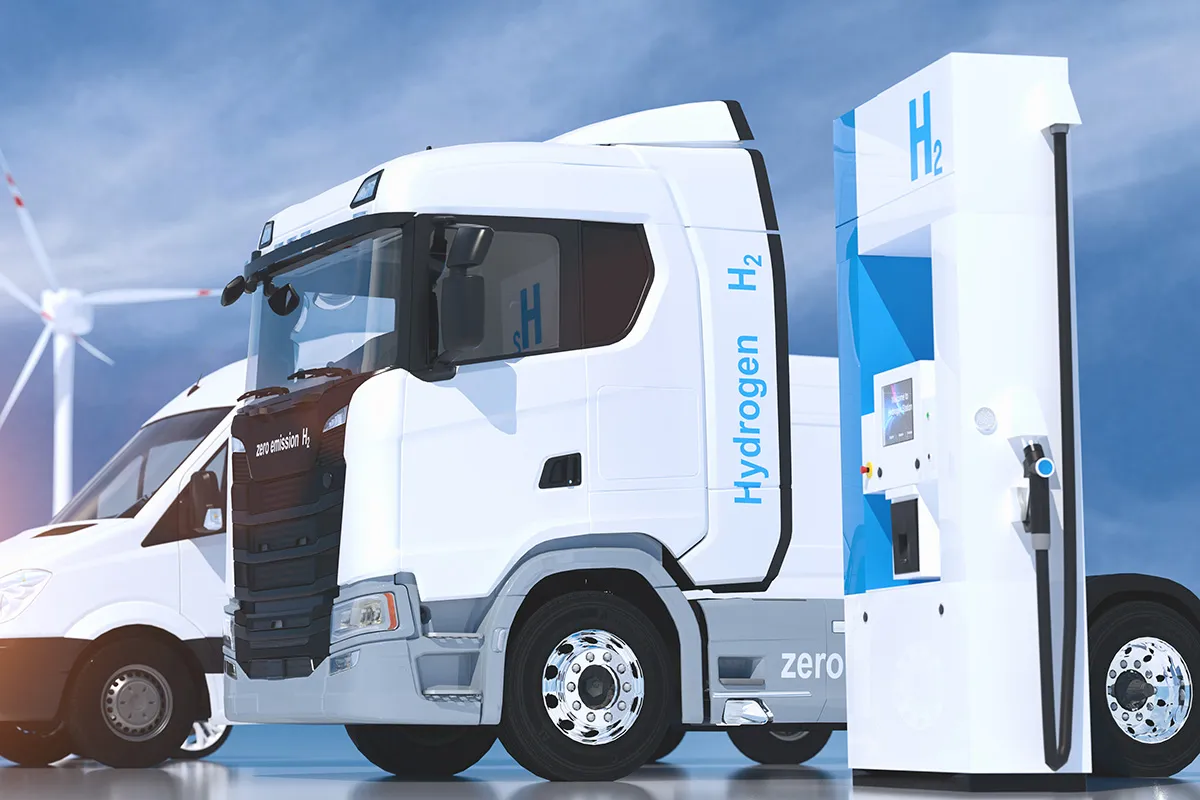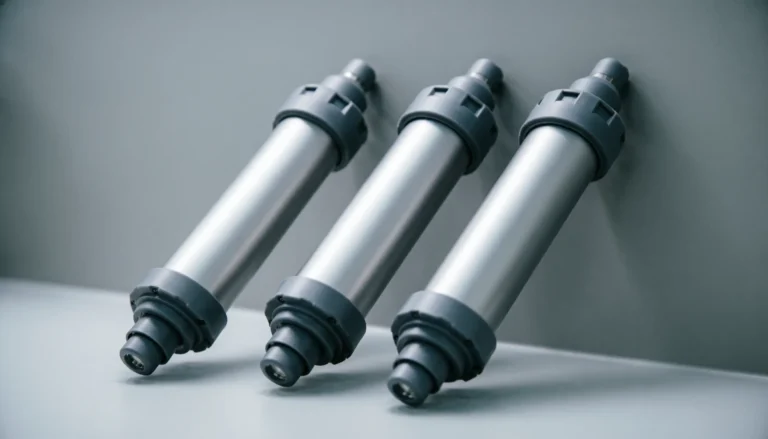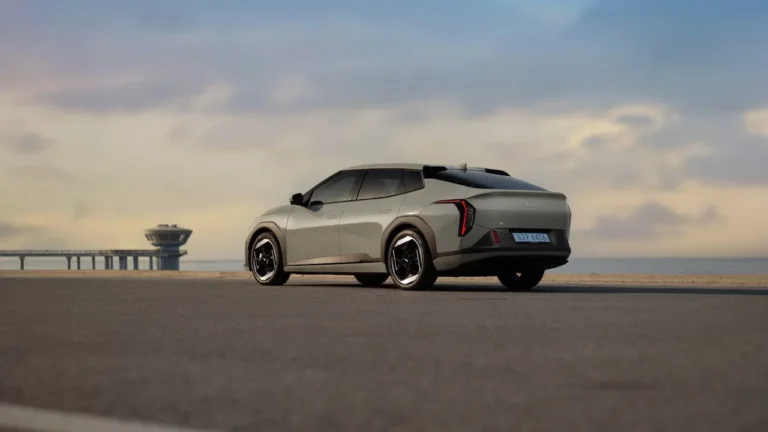
Next-Generation Mercedes-Benz GenH2 Fuel Cell Trucks Undergo Intensive Summer Trials in the Swiss Alps
Daimler Truck has taken another major step forward in advancing hydrogen-powered transport by returning to the Swiss Alps for an extensive round of summer testing with the latest prototypes of its Mercedes-Benz GenH2 Truck. Following the company’s successful winter trials, the new stage of development focused on assessing the trucks’ endurance and performance under the most challenging hot-weather and high-altitude conditions that Europe has to offer.
The rugged Alpine region of Valais, with its extreme road profiles, served as the proving ground. Stretching from 600 to 2,478 meters in elevation, the mountain passes present unique challenges for any vehicle, particularly heavy-duty trucks. Many of these routes are accessible only during the summer, offering an ideal environment for Daimler Truck’s engineers to test the limits of thermal management, drivetrain efficiency, and the integration of advanced assistance systems. The high summer heat, with temperatures climbing above 35 degrees Celsius, combined with thin mountain air, created the perfect scenario to push the GenH2 prototypes to their operational limits.
Pushing Technology in Extreme Conditions
The primary goal of these summer tests was to validate reliable operation under the toughest conditions a commercial truck might face in everyday logistics. With fuel cell technology being positioned as a cornerstone of Daimler Truck’s decarbonization strategy, ensuring stability and resilience is critical. The engineers placed particular emphasis on evaluating driving behavior, vehicle dynamics, and cooling performance while climbing prolonged gradients and navigating steep descents.
The interaction between the hydrogen fuel cell, the high-voltage battery, and the tank system was monitored carefully. In high-demand scenarios, such as long uphill climbs, it is crucial for the system to balance power delivery while maintaining efficiency. Thermal management, which ensures that the fuel cell and battery remain within optimal operating ranges despite external heat, was a key area of focus.
Another priority during the trials was advancing the digital assistance system known as Predictive Powertrain Control (PPC). For fuel cell trucks, this technology takes on a heightened role. By using geobased route data, PPC can anticipate upcoming inclines several kilometers ahead. The system then optimizes the truck’s power strategy: the fuel cell ramps up in time, additional energy is stored in the high-voltage battery, and sufficient reserves are available to tackle demanding gradients efficiently. This forward-looking approach not only improves performance but also enhances overall fuel efficiency – a crucial factor for fleet operators considering hydrogen trucks as a long-term solution.
Hydrogen Refueling in the Field
To support the Alpine tests, Daimler Truck partnered with Air Products to provide mobile hydrogen refueling. A dedicated station operating with the liquid hydrogen (sLH2) standard was established at the test base in Valais. This allowed the four GenH2 prototypes to be refueled quickly and reliably under real-world conditions, demonstrating that mobile hydrogen supply solutions can play an important role in early deployment stages before widespread refueling infrastructure is fully developed.
Extensive Test Results
Over the course of several weeks, the four prototypes collectively logged more than 10,000 kilometers and climbed an impressive 146,000 meters in elevation. These figures highlight both the endurance and the maturity of the next-generation fuel cell trucks. Despite the harsh environment of steep mountain passes and scorching summer heat, the systems delivered stable and consistent performance.
The results not only confirm the progress Daimler Truck has made in developing its hydrogen-powered vehicles but also provide valuable data to fine-tune the trucks before broader rollout. Every kilometer and every climb contributes to refining the balance between efficiency, reliability, and driving comfort.
Roadmap to Market
With the summer tests successfully completed, Daimler Truck is preparing the next phase in the journey toward commercial deployment. At the Mercedes-Benz plant in Wörth, Germany, a small series of around 100 advanced semitrailer tractors will be produced. These vehicles will be put into real-world customer operations starting at the end of 2026, giving logistics companies the opportunity to gain practical experience with hydrogen-powered heavy-duty trucks.
Looking further ahead, Daimler Truck has set its sights on large-scale industrialization of fuel cell technology and full series production in the early 2030s. The focus will be primarily on Europe, where regulatory frameworks and customer demand for sustainable long-haul solutions are accelerating the transition away from diesel. Hydrogen, particularly in liquid form, is expected to play a key role in enabling zero-emission freight transport over long distances.
Pioneering the Future of Zero-Emission Haulage
The Alpine trials underscore Daimler Truck’s commitment to making hydrogen a viable and dependable energy source for heavy-duty transport. By testing under the toughest natural conditions, the company is ensuring that its vehicles are prepared for the realities of long-haul logistics, where reliability and efficiency are non-negotiable.
With each milestone – from winter testing to this latest summer campaign – the Mercedes-Benz GenH2 Truck moves closer to becoming a commercial reality. For Daimler Truck, the message is clear: hydrogen fuel cells are not just a vision for the distant future, but a technology steadily advancing toward real-world operations that will redefine sustainable transport in the decades ahead.




